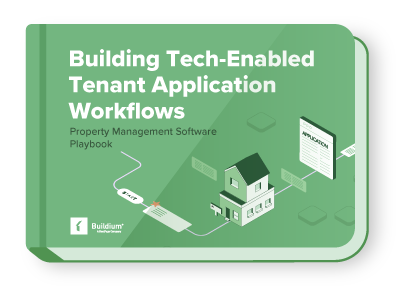Originally posted on VentureFizz
Sapient alums Dimitris Georgakopoulos and Michael Monteiro founded Buildium, a SaaS platform for property managers, in 2004. The company raised its first round of private equity last October after bootstrapping their way to 6,000 customers in the past four years. In 2012, Buildium was named to the Inc. 5000 and Boston Business Journal’s 10 Places to Work.
With 50 employees spread across offices in Hyderabad, India and Boston’s Innovation District, Buildium launched a mobile app about a year ago and has successfully taken on larger, less agile accounting software platforms for property managers. However, that wasn’t the original vision.
Georgakopoulos, Monteiro, and another Sapient colleague initially built the platform for themselves after buying several rental properties on Providence’s East Side and discovering that there wasn’t a tenant-tracking platform available that quite met their needs. “All the software we found back then was desktop software, legacy companies that had been around,” says Monteiro. “That didn’t work for us, so we built something very simple that tracked online our tenants, our leases, and had a tenant-facing piece to it.”
Only later did they consider the platform’s commercial viability. They planned to offer a companion to existing accounting software but later discovered that users didn’t want to manage two software programs. “A standalone tenant portal that was disconnected from the landlord’s software wasn’t going to cut it,” says Monteiro. “It needed to have more features than it did.”
Although they didn’t use the term “pivot” at the time, Buildium’s cofounders pivoted to a more comprehensive software platform. “We didn’t want to think about displacing existing software,” admits Monteiro, “so we probably hung onto that idea [of a standalone tenant portal] longer [than we should have] because we were so invested in it. We’ve gotten better with not falling in love with our ideas.” They also focused on professional property managers because they were easier to find than individual landlords.
Monteiro attributes the company’s success in part to the fact that they built the platform themselves instead of hiring developers. When they did hire developers, opening an office in India helped keep costs down. “We had programming backgrounds so that helped, since we didn’t have to hire people,” he says. “We were able to do what we did without raising money largely by tightening our belts, reducing our personal expenses, and living without a salary. We had a modest amount of revenue from early subscribers but it was really like a stipend.”
In Buildium’s early days, its cofounders acquired customers “by pounding the pavement and talking to the property mangers that we knew,” says Monteiro. Now customer acquisition is all through inbound marketing. “They’re searching for software like ours or increasingly they’re seeing us on the natural search ranking,” he explains. “Eventually, we’re gonna have to start searching for people that may not be actively searching on their own, but we’ve had the luxury not to have to do that.”
Today, Buildium gets a large number of free trials for their software each month. “Once you sign up, whether you sign up for Buildium or another platform, there’s a high cost to switching, so there’s a sense of urgency to acquire those customers,” says Monteiro, adding that he hopes last fall’s private equity will help them scale more quickly. “As a SaaS company, you can only invest as the money comes in. We didn’t want to run the business that conservatively anymore.”
Despite Buildium’s success, Monteiro admits to a few mistakes along the way. For one, instead of building the company part time for the first two years, he wishes they’d jumped in full-time sooner. “I think we were too conservative,” he says. “There were a lot of signals that this was worth doing.”
He also wishes they had spent more time testing ideas and talking to potential customers. “We should have spent more time testing ideas with potential customers instead of relying on my gut and building it,” he adds. “You have to be prepared to throw out or change directions if you discover you’re on the wrong path.”

